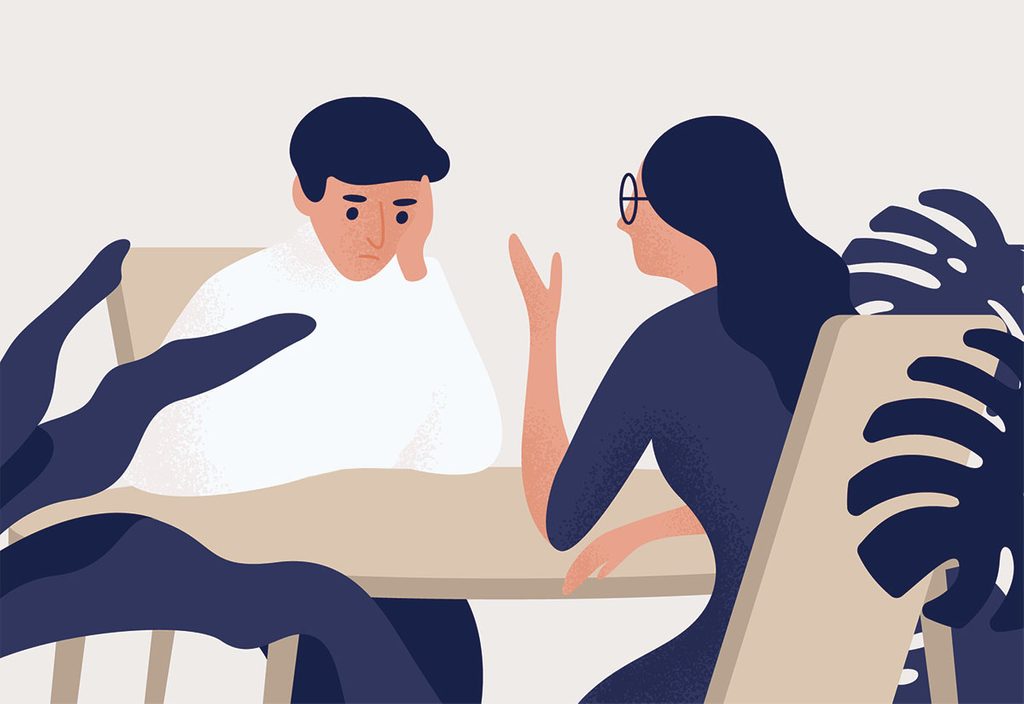Are You the Toxic One in the Relationship?

Feeling needy? Having unrealistic expectations? Experiencing jealousy? You may be sabotaging your relationship. Here's what to do.
Most of us try to be the best versions of ourselves in our relationships. We try to listen well, be supportive and act thoughtfully and with kindness. But sometimes things get complicated, and our emotions get the best of us. We end up speaking and behaving in ways that are detrimental to our relationships and ourselves. Although it’s never an excuse to treat the ones we love badly, it’s important to consider where the behaviour stems from to learn how to correct it.
We reached out to two experts for their advice.
Lisa Brookman, a clinical psychotherapist based in Montreal, says…
In my psychotherapy practice, I frequently deal with clients who feel that they’ve become the toxic person in their relationship. This often presents as neediness, unrealistic expectations and jealousy. It’s important to acknowledge that these behaviours rarely stem from bad intentions. Rather, they come from a place of insecurity and low self-esteem. (Psst: Here are ways to remind yourself you’re worthy.) The first step toward fixing the problem is to take ownership of the negative behaviour and put steps in place to improve your self-worth. It’s extremely difficult to have a positive relationship with your loved ones when you have a negative self-view.
That being said, here’s how you can go about building self-esteem:
1. Consider talking to a therapist, who can provide you with tools and techniques to help you appreciate your value and learn how to communicate in healthier ways.
2. Don’t beat yourself up. If you’ve said the wrong thing or behaved in ways you’re not proud of, remember that you’re human and everyone makes mistakes. Offer up an apology and learn from your misstep.
3. If you’ve made an effort to work on yourself and you’re still finding it difficult to maintain a healthy relationship, examine whether it brings out the best in you. Healthy relationships should. Sometimes it’s just bad chemistry, and it’s better to cut ties.
Elizabeth Wiener, an educator who lives with depression and anxiety, says…
Although I’ve been happily married to my husband for 22 years, there are many instances where I find myself behaving in ways that feel unhealthy. While it’s not one of the most talked about symptoms, generalized anxiety disorder can affect your ability to communicate effectively and kindly with loved ones. Although my intention was never to cause hurt, my anxiety made me feel agitated and left me short-tempered, curt and impatient.
Fortunately, I realized that I needed to address the source of the problem to start feeling healthier and more balanced. Through therapy, I learned about self-compassion, acceptance and commitment therapy, which is an approach to help moderate anxiety and appreciate one’s self-worth. I’ve also learned that exercise helps defuse anxious feelings and give me a sense of clarity. After a run, yoga class or boxing lesson, I always feel less emotional and more grounded and am able to communicate more effectively.
Finally, I give myself permission for a timeout when I feel edgy, angry or impulsive. Taking some deep breaths and practising a few minutes of mindfulness help me express myself rationally and constructively without hurting anyone’s feelings.
Together, Elizabeth Wiener and Lisa Brookman form WiseWomenCanada.com. Follow them on Instagram at @wisewomencanada.
Next, check out what Elizabeth and Lisa suggest doing if anxiety is ruining your sex life.




